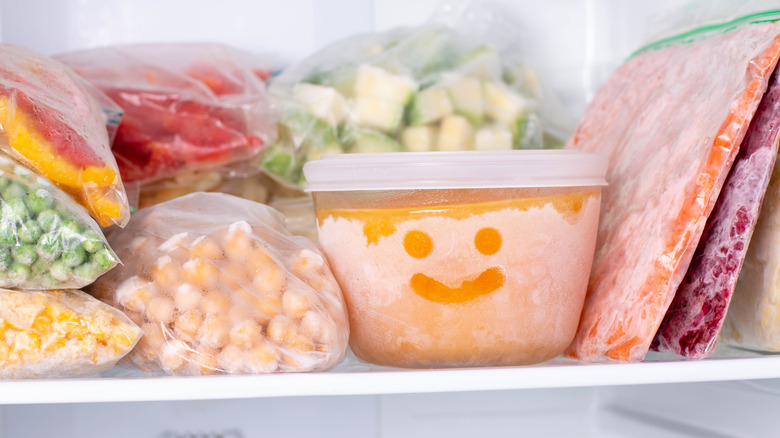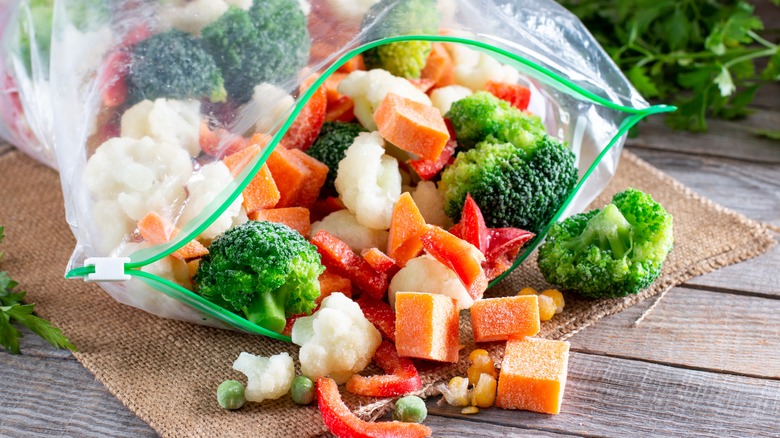If Your Power Goes Out, Here's How Long Your Freezer Food Is Safe
Although some outages can be anticipated when nature is forecasted to have a tantrum, sometimes they can occur out of the blue. When the power goes out unexpectedly, there are always a few moments of disappointment when you realize that your phone and computer only have so much battery life. That's quickly followed by wondering how long your food can stay safe to eat without electricity. According to FoodSafety.gov, the fridge will keep perishables from spoiling for roughly four hours if the door remains closed, but a freezer can protect food for quite a bit longer.
On average, a freezer that is half full will continue to protect your food for 24 hours. If it is packed full of frozen fare, that time is doubled. That's because the frosty items in the icebox act like ice packs that prevent each other from warming up quickly. Of course, any time you open the freezer, you allow cold air to be replaced by the ambient temperature of your kitchen. This cuts the time food will stay frozen.
When you have a full freezer and the power is out for over two days, your frozen items still aren't necessarily destined for the trash. Most food that still has ice crystals on the outside can be refrozen. The texture and flavor may not be the same once something has been partially thawed, but it should be safe to consume.
Some items last longer when the power is out
If there are no ice crystals and the food has been sitting at 40 degrees Fahrenheit or above for over two hours, many items won't be salvageable — but not all. Any meats or frozen pizzas from the grocery store exposed to higher temperatures for that long will have to go, but things like pie crusts and hard cheeses (not that these are the best kind of cheese to store in the freezer) can be refrozen. Store-bought frozen fruit should also be okay to refreeze, but check to make sure it's mold-free and not slimy. The texture and flavor will likely be affected, but if it's a choice between throwing money in the garbage or eating a perfectly safe, albeit lesser-quality item, it might be worth keeping around.
One notable exception to the two-hour rule is frozen vegetables. As per FoodSafety.gov, these can be refrozen if they have sat for up to six hours at 40 degrees or above. The quality will suffer, but they should be safe to eat.
If the power has been out for a while and you aren't sure if something is salvageable, bear in mind the old adage: "When in doubt, throw it out." Food poisoning is unpleasant at best and, in rare cases, can be lethal. Young children, pregnant people, or folks 65 or older are particularly susceptible to food poisoning. In other words, saving a few bucks isn't worth the risk of contracting a foodborne illness.

